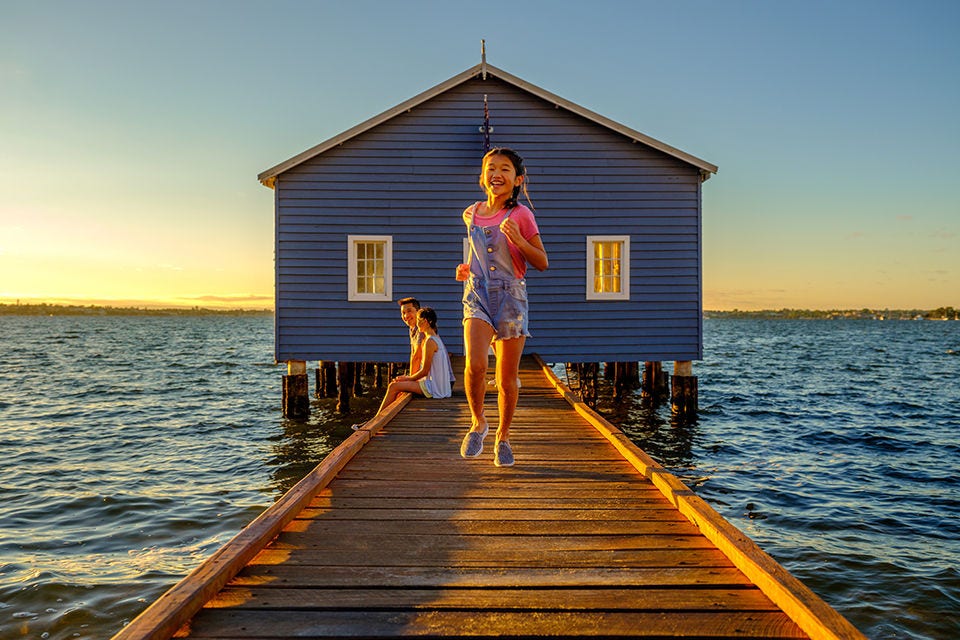Thousands of international students bring family members with them to Australia each year. It’s an excellent way for your family to learn about other cultures, explore a new country, learn in diverse classrooms, develop their language skills, and build lifelong connections.
You can include family members when you lodge your student visa application, including:
- your partner (spouse, de facto or same-sex partner)
- your dependent child/children under 18 years of age and, or
- your partner's dependent child/children under 18 years of age.
You must provide evidence showing your relationship with your dependent family members. This may include marriage certificates and birth certificates.
Your family members will also need to provide evidence that they meet specific health and character requirements. This may include medical examinations and police clearance certificates.
You will also need to prove that you can financially support your family when you are in Australia.
More information on how to include your family in your student visa application is available on the Home Affairs website.
Bringing your partner
A spouse or de facto partner can be added as a secondary applicant to a student visa application.
Couples may need to provide evidence to support the claimed relationship, including a marriage certificate or proof of living together. Spouses and de facto partners must also satisfy the Department of Home Affairs that they are genuine temporary entrants.
Your partner may have different working rights than you. For more information on visa conditions, check the visa grant letter or use the Visa Entitlement Verification Online system (VEVO).
Bringing your child/children
The Australian Government will only grant a student visa to your child if they are under 18 years of age when a decision is made on your visa application. They must apply for their own visa if they are 18 or older.
You will need to pay for any dependent children to go to either a public or private school in Australia. The starting age for schools in Australia is around five years, but the exact start can differ in each state and territory.
For children under the age of five years, you can consider childcare or kindergarten services. Some Australian education providers, including universities, have childcare facilities on or near campus. There are also private and not-for-profit childcare centres located in all cities.
It’s a good idea for all childcare services to research the options and costs before you arrive. You should look for the type of care that suits you and your child best and a service that is in a convenient location (e.g. near to campus or where you plan to live). Making childcare inquiries sooner than later is also a good idea, as there is often a waiting list. You can add your child’s name to multiple waiting lists if you are unsure about your service needs or exact location in Australia.
For more information on your child’s visa conditions, check the visa grant letter or use the VEVO system.
Bringing your parent (if you are under 18 years of age)
If you are a student under 18, an adult can come to Australia with you to provide care and support. They must be:
- a parent, custodian or relative who is 21 years or older
- have enough money to support themselves and you during their stay, and
- able to provide you with accommodation, welfare and other support.
Your parent will have to apply for a Student Guardian visa. Your parent or guardian:
- cannot work in Australia.
- must live with you.
- must satisfy the Department of Home Affairs requirement that they are genuine temporary entrants.
Bringing your family at a later time
You must declare family members when you lodge your student visa application, even if they do not plan to travel with you to Australia immediately. If you don’t declare them on your student visa application, they will not be eligible for a student visa to join you in Australia at any stage.
Your family member(s) can apply as a subsequent entrant later, separate from your application, in ImmiAccount.
If a person became your family member after you lodged your application, and before a final decision on your visa application, you must inform the Department of Home Affairs of the change in circumstances.
Support for you and your family
Your education provider will offer support services. You should contact your provider’s student services for more information regarding accommodation, childcare and schools. Some education providers also offer childcare and English language classes for your family.



